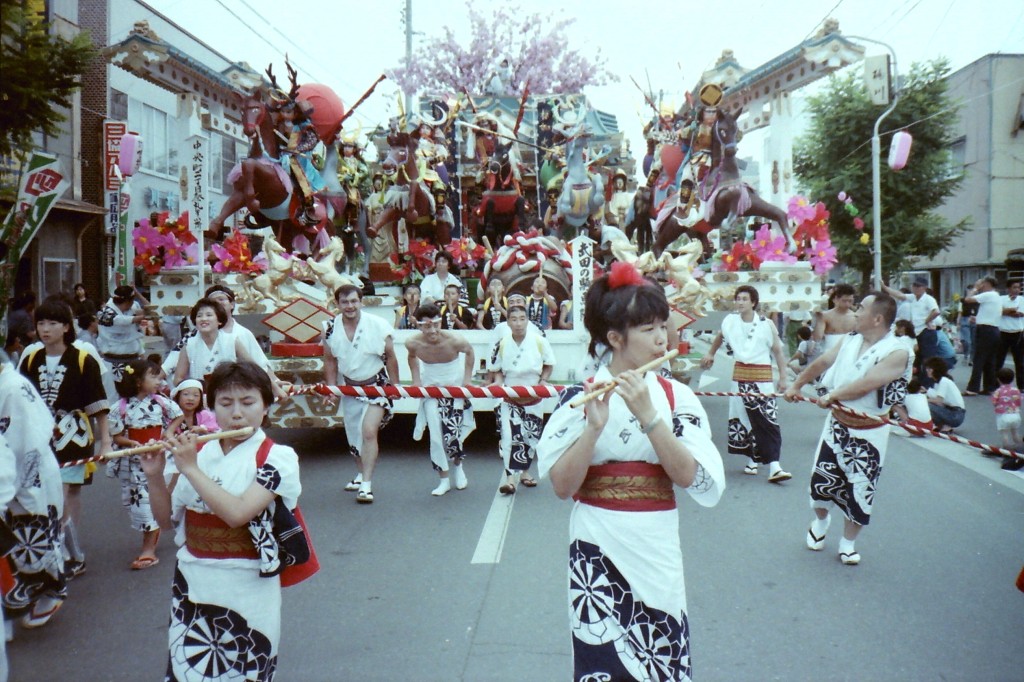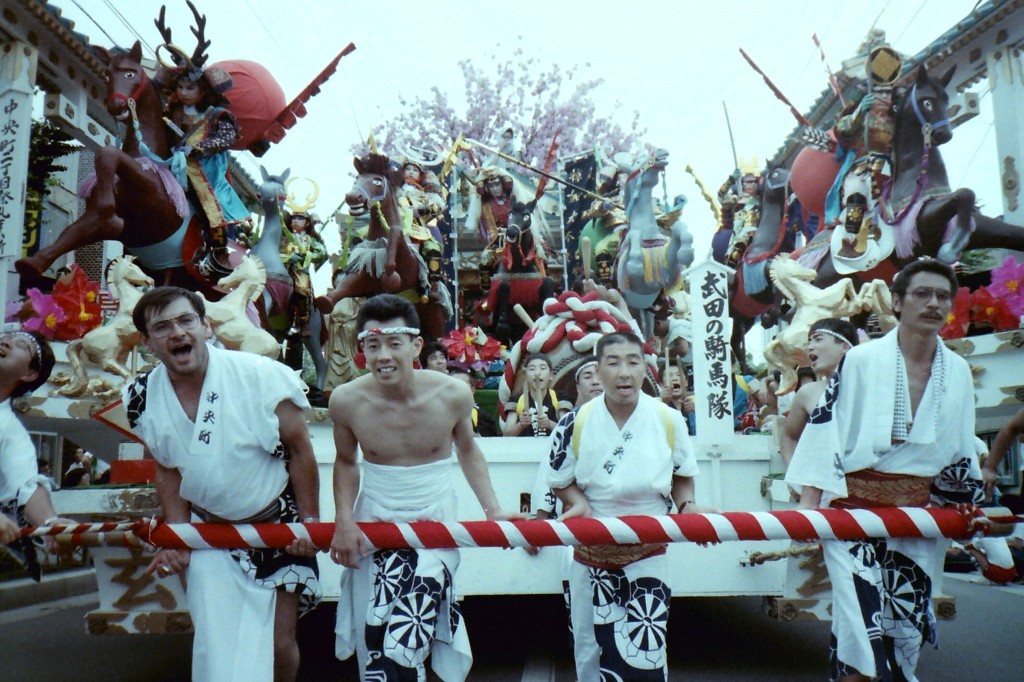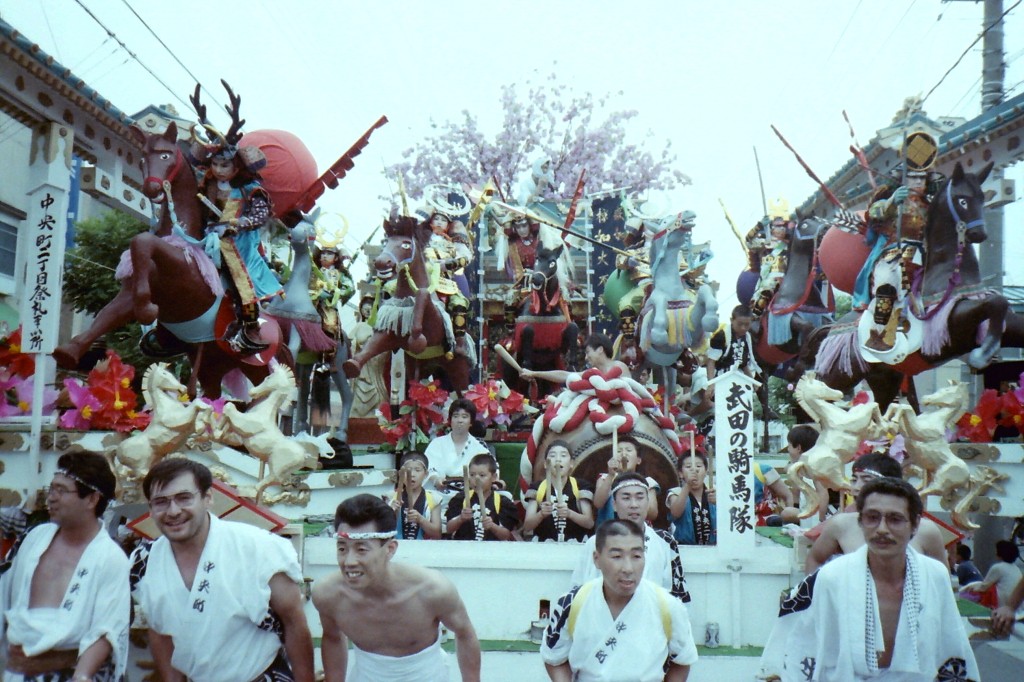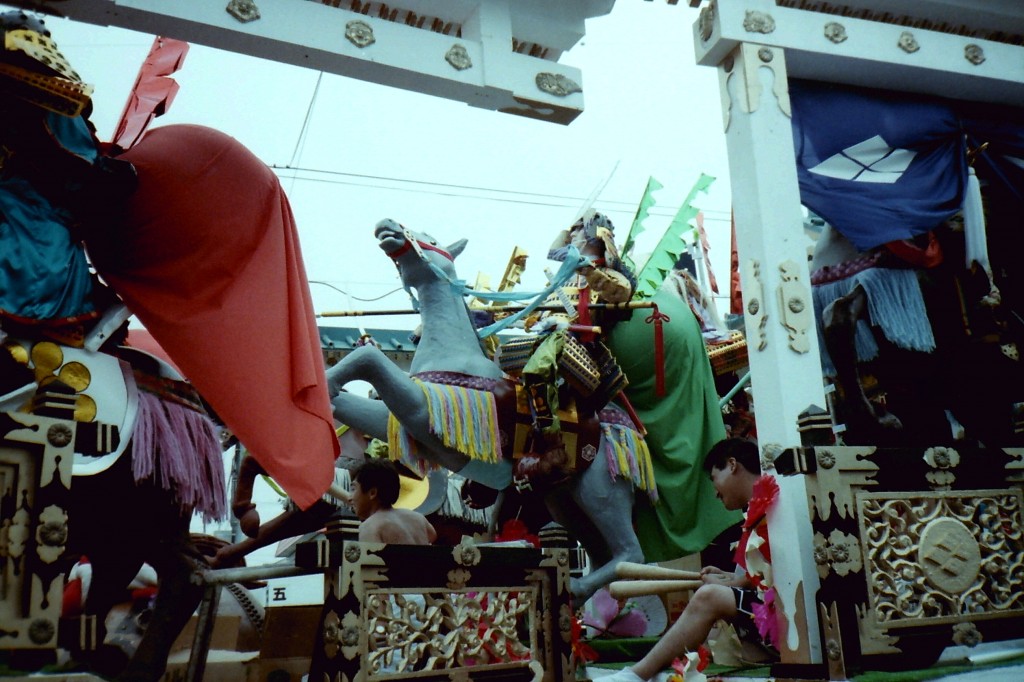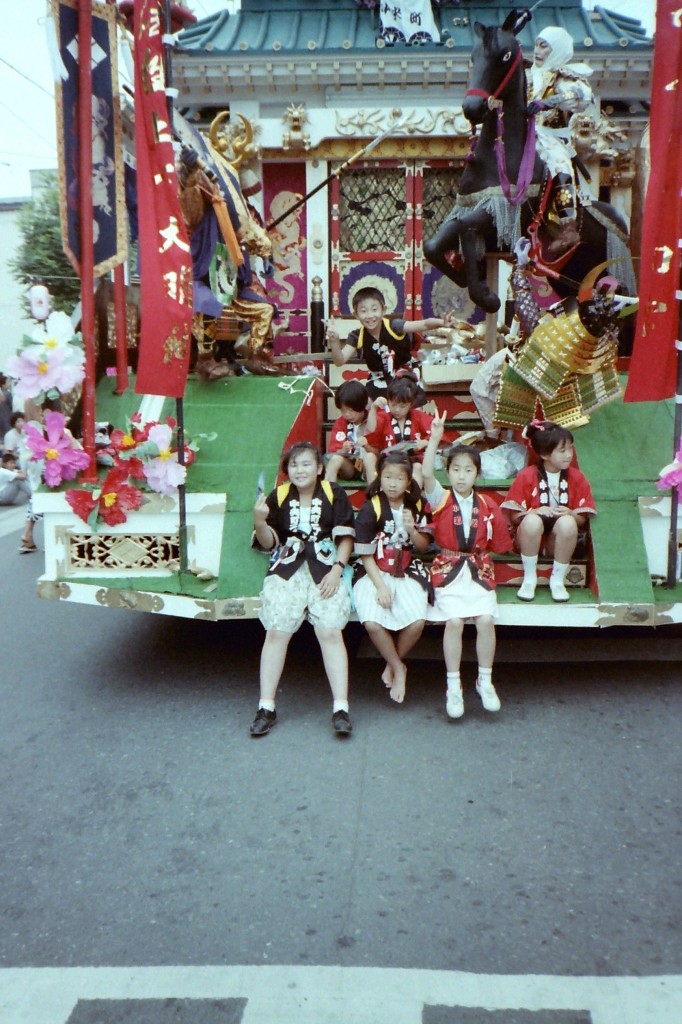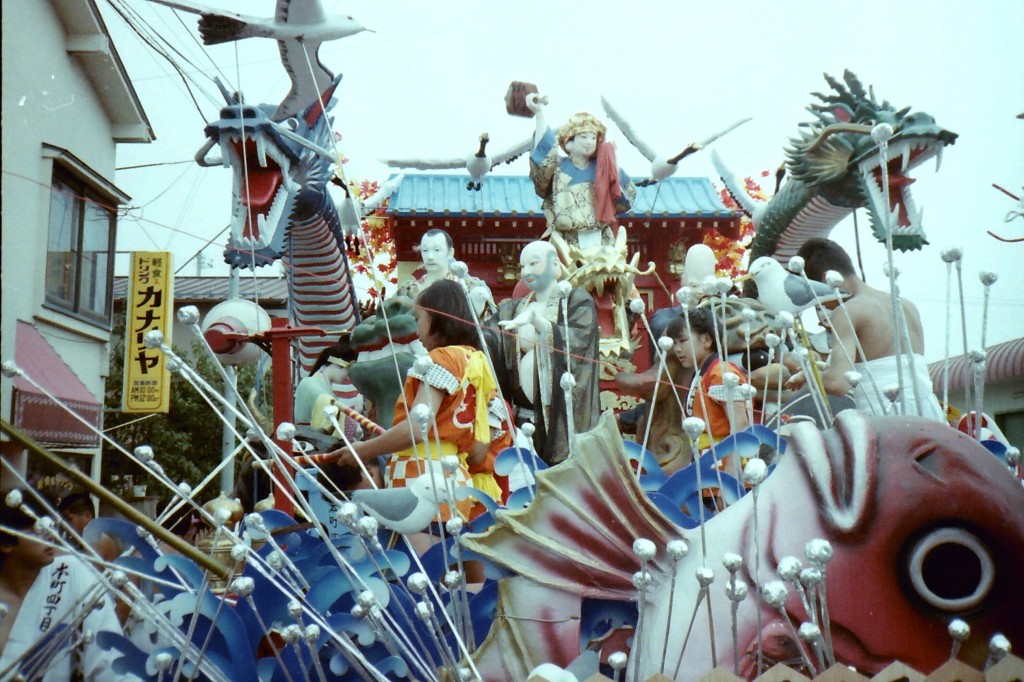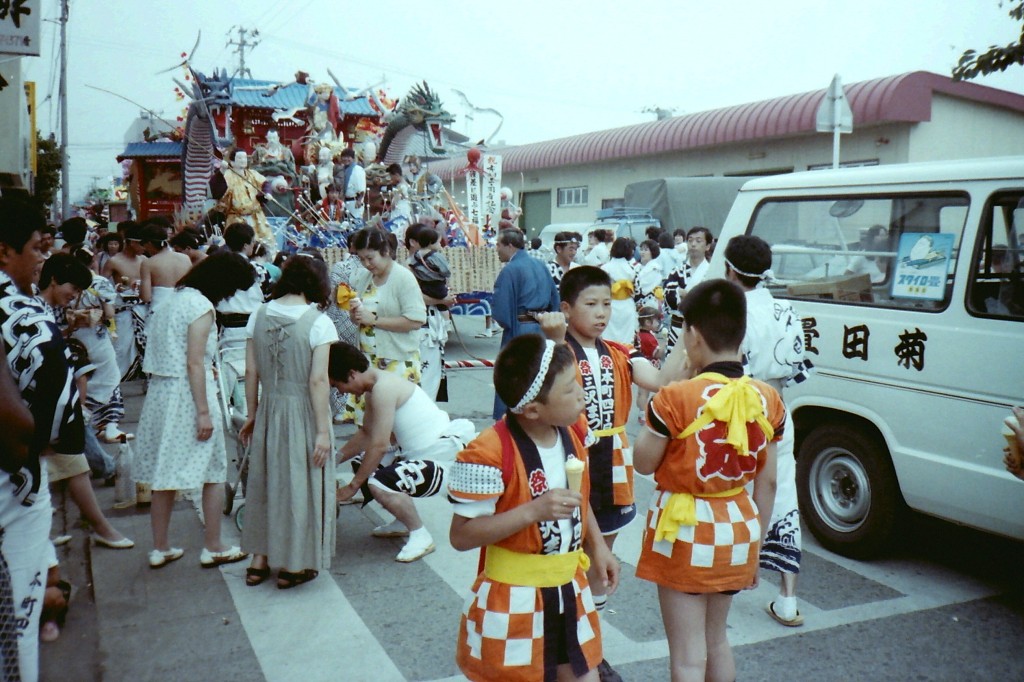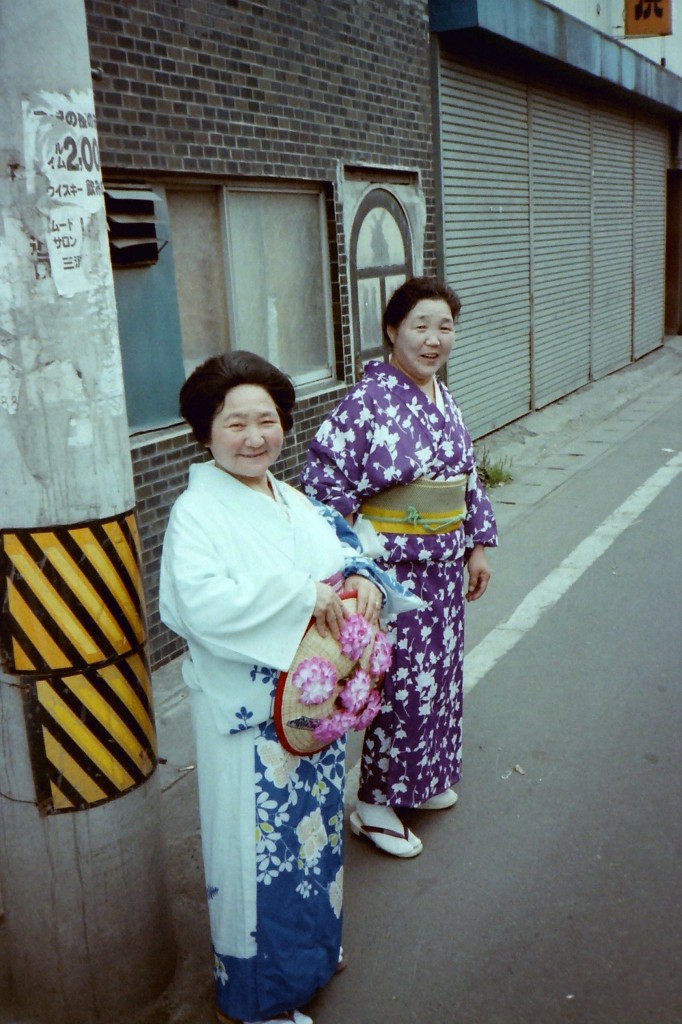Well, these really were the last — they just happen to be some of the best close-ups. I ran between the hauling ropes to get right up in the celebrants’ faces.
This angle shows the on-board musicians a bit better. And it brings to mind a scene from a certain Tom Cruise movie, doesn’t it? Check out this movie poster.
I don’t know what the first two girls are holding — sort of looks like knives — but the third girl is giving the peace sign, as is the boy behind them (and with both hands!). One of the things that was so prevalent among the young (almost exclusively) in Japan was a theme of peace. I was once approached by some young girls in a McDonald’s who wanted me to write my “peace message” for them. I suppose it was a school assignment. Such an assignment might seem totally innocuous to the average westerner, until one understands where it comes from. You see, the Japanese are not taught the true history of World War II — and I’m not saying that just because I’m an American. No, for a number of reasons, including plain-old shame, the Japanese thought it better not to burden their children with the unnecessary knowledge of their merciless, murdering, plundering, raping, torturing, cannibalistic, heartless history of sweeping conquests through China, Korea, Southeast Asia, and much of the Pacific Rim. No, they just sort of spread the blame around so that everyone appears to have an equal share of the responsibility. One part of that great lie you may have heard before: “Oh, they would never have attacked Pearl Harbor if we hadn’t denied them oil.” What a crock. Ever heard of The Rape of Nanking? Ever heard about people being used for bayonet practice? Ever hear about a boy being tied up in a tree and, while still alive, his flesh being cut off to feed the Japanese Soldiers’ dogs? Can you imagine his screams? Can you imagine how his mother might have felt? If you don’t believe that story, read Flyboys, by James Bradley. I haven’t told you the worst of it.
“Peace message?” Give me a break. But don’t get me wrong — many Japanese are today very nice, kind, generous people.  Some were also very nice when I was there — at times very much nicer than most Americans — but I often felt as if I were black and living in the South during the Jim Crow days. The Japanese were the human beings, and all non-Japanese were gaijin — foreign people, i.e., barbarians. The Japanese really defined racism like no one else.
One of my coworkers walked into a Japanese karaoke bar one time (yes, the word IS Japanese, and it means “empty orchestra”) where an older man was singing about the glory of Japanese imperialism, while videos of WWII Japanese sailors swabbing the decks of the battleships and such were being displayed on the display screen. When the song was over, the old man was very embarrassed (to be caught by an American), and he apologized profusely. Was he sorry for singing the song? No. He had “lost face” by being found out, but he would do it again in a heartbeat.  During that same time period, I was discussing with a middle-aged Japanese woman about how long it might be before everyone would forget about the war. I suggested twenty years, but she said “No.” According to her, it would take at least forty years, or when everyone who could remember the war was dead. This conversation took place only 44 years after the end of the war, and if she was correct, we must wait until 2029 for all the bad feelings to disappear. But then, I think of all the people in Georgia who still hate General Sherman.
Let’s keep it moving, folks. Nothing here but peaceful dragons, birds, and giant fish.Â
The end of the parade, and time for a sweet treat. But you could bet your sweet yen that the ice cream is going to contain soymilk.
These happy, classy matrons dressed up in their best festive regalia for the matsuri. Now, if only everyone who was old enough to remember the war, as were these women, could have managed a smile when a gaijin wanted to taked their photo.
I’m not sure when I’ll get a chance to scan in more negatives, so, until next time, I thank you for viewing, and I bid you adieu.  Sayounara, ki o tsukete, oyasumi nasai. Mata, ne.

